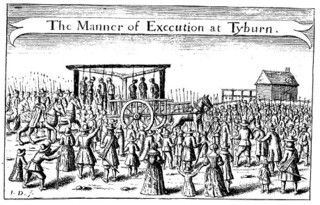Riffled
Jonah Miller · Hatton Garden Heists
The men who carried an industrial drill down a lift shaft to break into Safe Deposit Ltd last month were joining along tradition of Hatton Garden thieves. Late in the 18th century, a Bedfordshire labourer called William Smith (just over five feet tall, with grey eyes and a ‘fresh Complexion’ according to the criminal register) was tried for a ‘Singular and daring Robbery Committed on a Bankers Clerk in Hatton Street’. And a 17th-century pamphlet, Strange and Wonderful News from London: or, A True Narrative of Several most Remarkable Occurrences there, tells the story of an earlier heist.
On a Sunday evening in December 1678, Mr Wartton, ‘a carpenter of good estate in Hatton-Garden’, opened his door to six armed men. They said they were looking for Catholics, but when he asked to see their warrant, one of them said there was no time: ‘the Traytors might escape’ while he was reading it. After searching every room in the house, they declared ‘it was money they came for, and money they would have,’ opened the door to let in ‘about half a score’ of their accomplices, and warned the household there was no point making any fuss because more of the gang were outside watching the streets. Wartton and his family were locked in a room while the thieves ‘riffled’ the house. A payment Whartton was waiting for, a ‘very considerable summ of money’, had not yet arrived, but the gang made off with his daughter’s rings (valued at £100) and 380 ounces of plate.
Word went round the London brokers and goldsmiths, and on the following Tuesday a woman who offered to sell ‘a considerable parcel of Plate’ walked into the trap. She told the man who took up her offer to go to a house in Shoe Lane at six o’clock that evening. He told the authorities, who ‘beset’ the house, arrested five men and found the stolen plate in the cellar. The thieves were taken to Newgate prison, but one managed to escape ‘in Womens cloaths’ despite being weighed down with sixty-pound irons. The others were executed at Tyburn, where any scaffold speeches they may have made ‘could not be exactly taken’ on account of the noisy crowd.

Comments
The blaggers used a Hilti DD350 drill. They are made in Liechtenstein, one of only two landlocked countries in the world, the other being Uzbekistan. The principality (pop. 37,000) has the second richest economy (GDP per capita) in the world after Qatar. It is the world's leading manufacturer of false teeth.
Its Prinz Franz married (Princess) Elsa von Gutmann from Vienna who became known as the country's "Jewish problem" but fortunately - or "sadly" as they say these days - he died in 1938 and the modernising Princess was removed from danger.
Franz's grand-nephew took over and turned the principality from a rural backwater into a mini-superstate, false teeth, drills and all. Hilti are the Rolls-Royce of precision tools.
I offer this bejewelled footnote because I found a fabulous, dumped, metallic-gold, 1960s racing bike in Camberwell, with a little sticker on it reading, "Made in Lichtenstein", hence my obsession. Runs beautifully.
One of only two double-landlocked countries. The are about 50 landlocked countries. (The number changes from time to time, as when Congo pushed a panhandle through Angloa to the sea, or Ottoman Hercegovina did likewise through Ragusa (Croatia).
What makes Liechtenstein and Uzbekistan remarkable is their being the only two surrounded entirely by other landlocked countries.
The story of Liechtenstein has many twists and turns. For instance, in pursuit of its astonishing wealth, a painting was sold off by the principality after the war which not only achieved a record price, but closely resembles my girlfriend when she catches me footling on the LRB blog instead of doing the housework.
Here she comes now.
https://en.wikipedia.org/wiki/Ginevra_de%27_Benci
P.S. If that's her annoyed face, I think I could live with the consequences of footling.